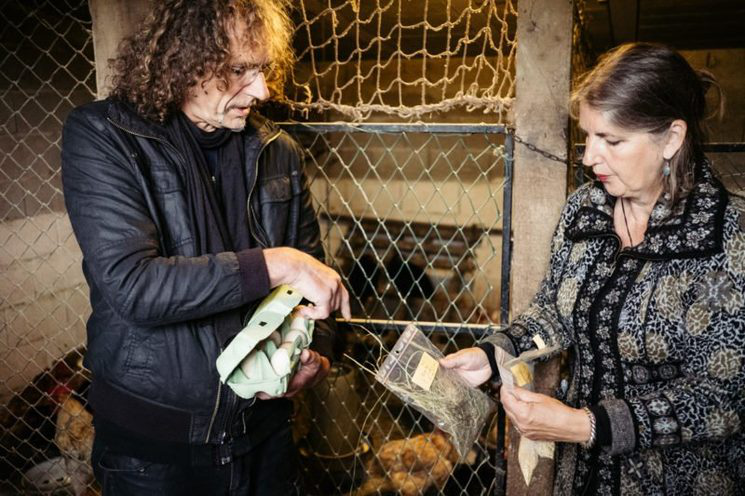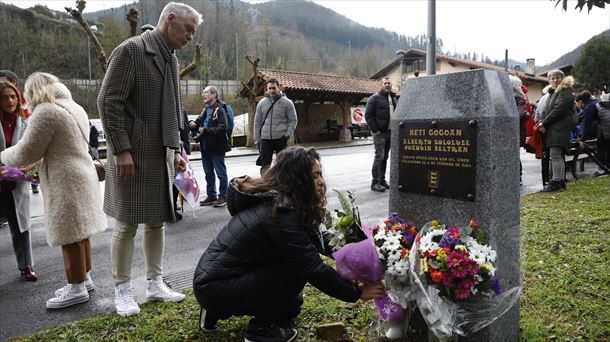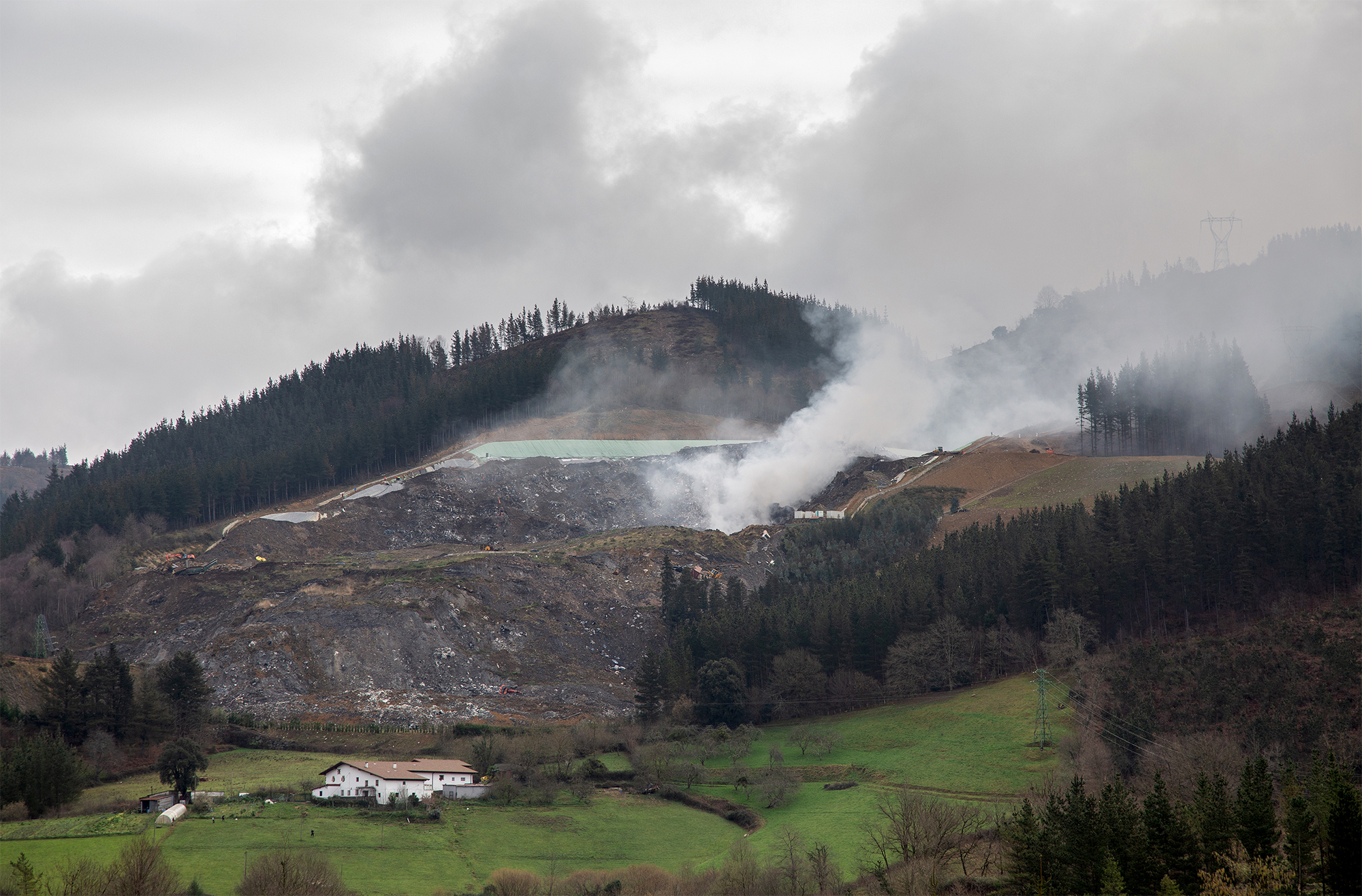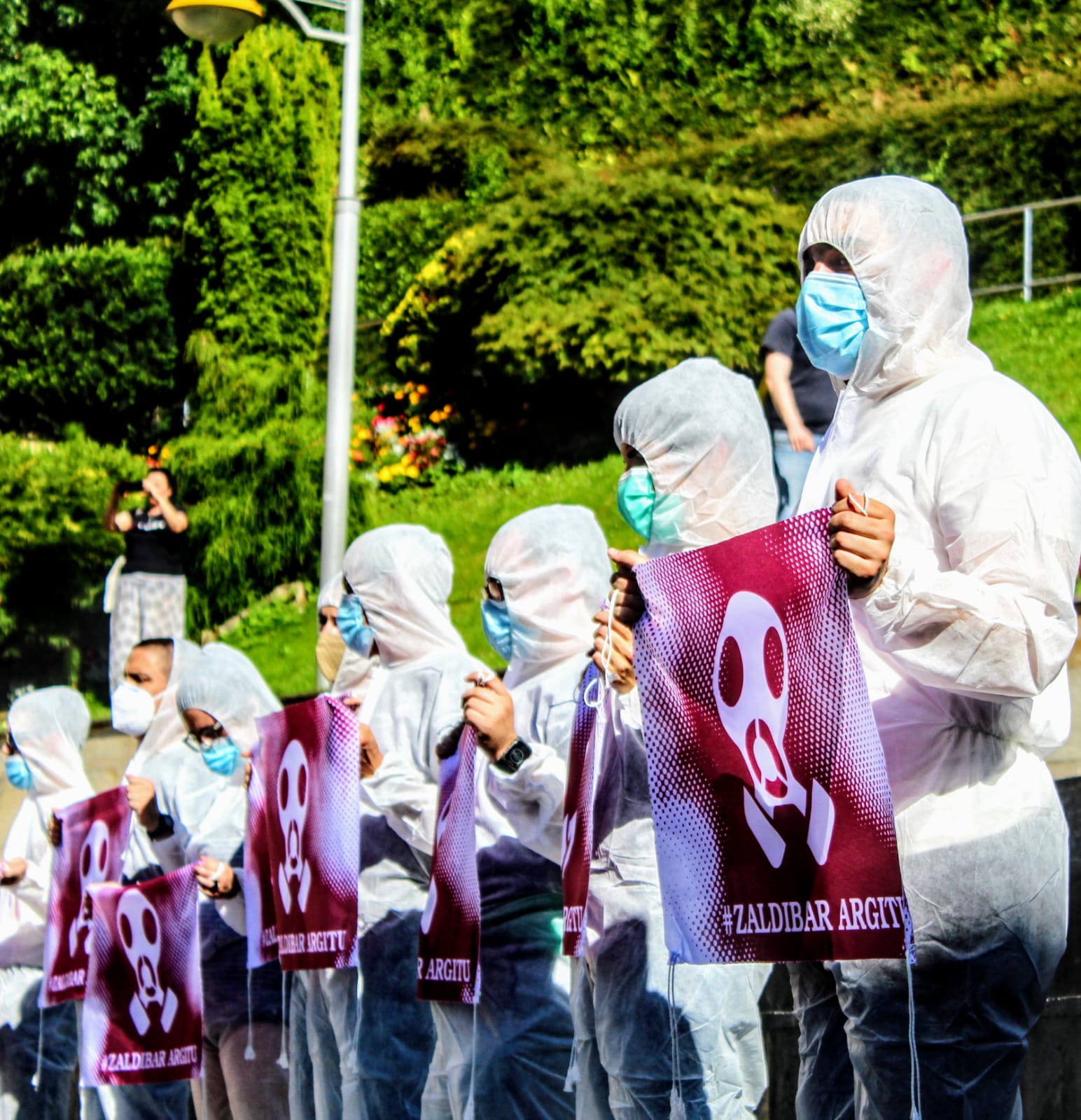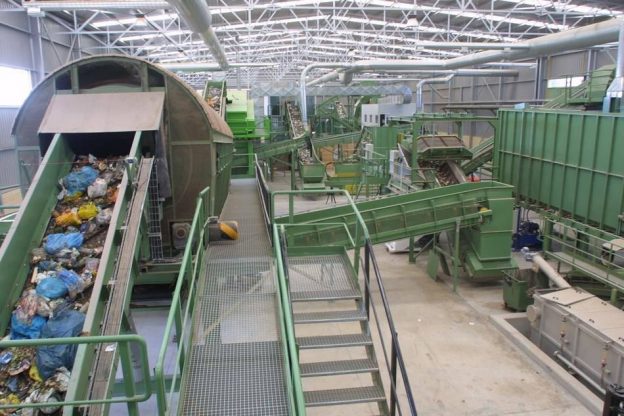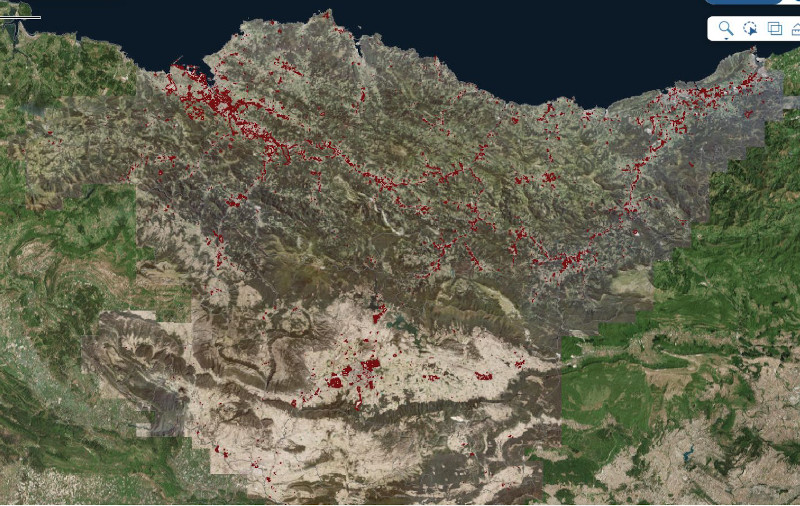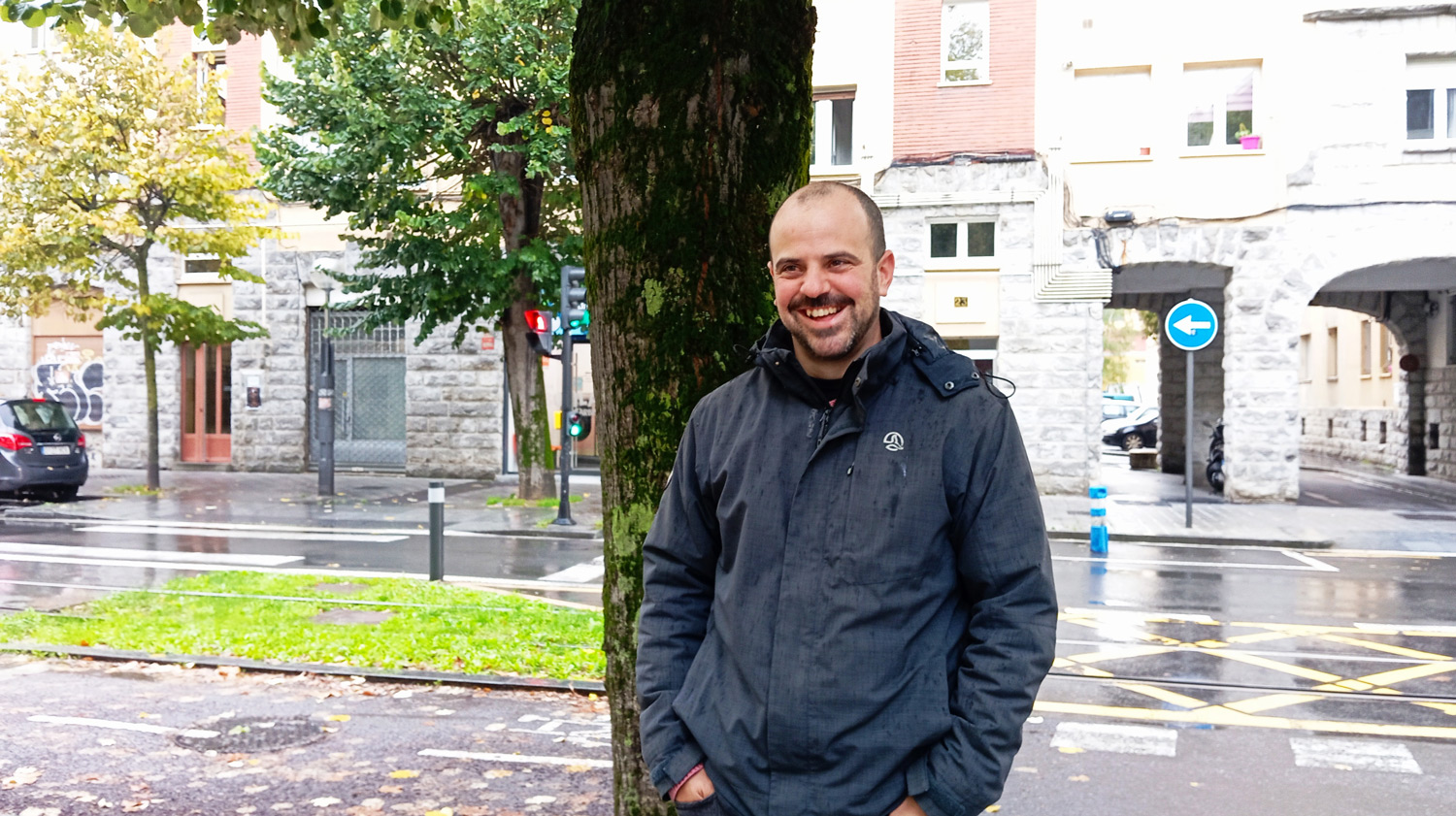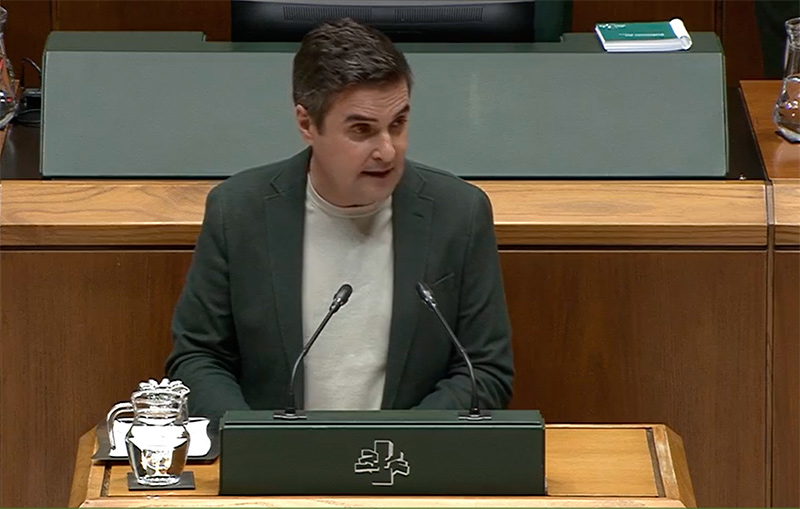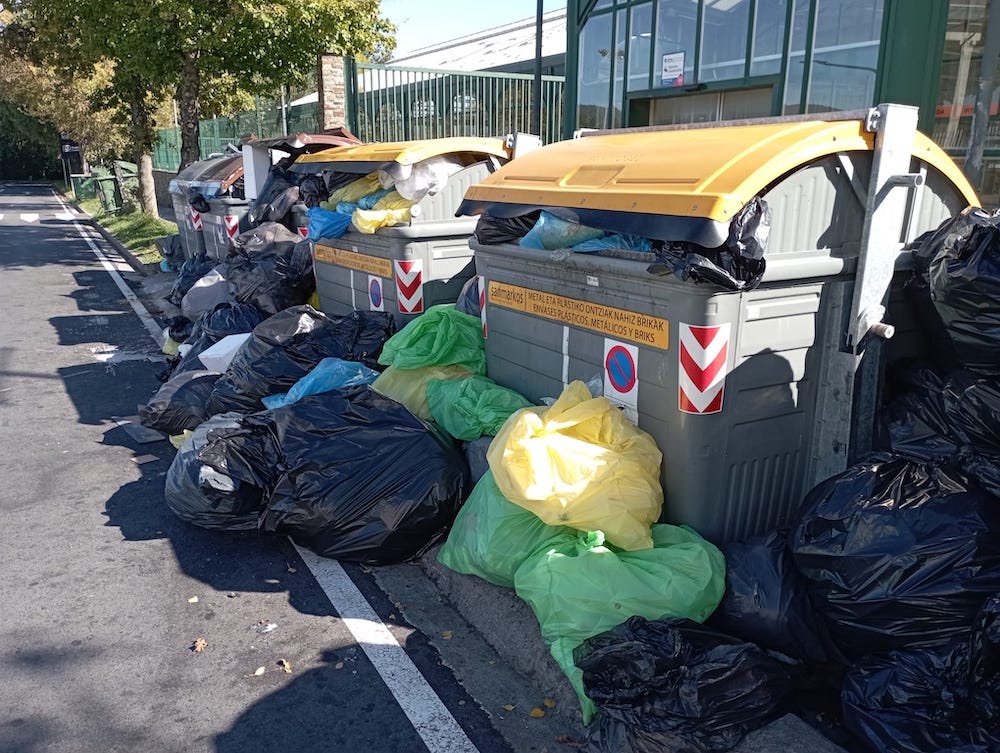The municipalities of Hernani and Usurbil (EHBildu) will denounce the ban and try to compost organic in the locality
- The City Hall of Hernani and the City of Usurbil (both government teams are made up of EHBildu councillors) have publicly registered the refusal of licences for the construction of two composting plants for organic waste collected at Atez Ate. ARGIA has published information on the prohibitions received by both the City of Hernani and the City of Usurbil. In addition to explaining to the public the details of each project, the two municipalities have denounced that the prohibition of the GHK and the Diputación continue with their bio-waste management plans in the municipality itself.

The Hernani City Hall discussed the issue at the plenary session on April 30, in relation to a motion presented in Hernani by the Zero Zabor association. In it, the Environmental Councilor, Mattin Aldaia, detailed the characteristics of the Hernani composting plant project, repeatedly denounced the discrimination and criminalization made to Hernani from the institutions controlled by the PNV and the PSE (either council or community), among which – as the municipal government has repeatedly confirmed – excessive fees are charged. Now, the Podemos councillor in Hernani also voted in the same way, while the PNV and PSE councillors voted against. The final point of the motion adopted reads: "In view of this, we ask the City Hall of Hernani to stand firm and demand that the Provincial Council of Gipuzkoa amend its decision," the Provincial Executive concluded. In plenary, at the time of the vote, the mayor, Luix Intxauspe, confirmed his intention to continue the project. (See Aldaia's Councilor's speech, which HZZ has collected on her Facebook).
For his part, the mayor of Usurbil, Xabier Arrangi, has denounced through a press release (see at the bottom of the news) that GHK wants all the waste to pass through his hands “to be managed at his will” and has announced that Usurbil has not only made progress on the exemplary road he leads on this issue, but has decided to continue with the intention of the small post.
As for the details, Arrangi explained that the new project foresees that the treatment of organically collected door-to-door is paid to the baserritarra person who is going to work there, with an annual income of around EUR 4,000, a significant additional income for farmers in precarious conditions. In comparative terms, Usurbil currently has to pay EUR 138 per tonne to the GHK for the treatment of its organic. It should be noted that the GHK applies the same rate to those who deliver the cleanest or dirtiest organic. This is another reason that the Door-to-Door peoples have to closely control their organic, as they try mixed with much dirtier ones, with a total reduction in quality, besides paying an unfair rate.
That is what Mayor Xabier Arrangi has denounced: “Somehow, they want all the waste to pass through their hands so that they can manage it at their will. That is the problem. All over the world, and what everyone sees as good and exemplary, GHK bans it. GHK does not in any way accept that waste management should be carried out in a more appropriate, responsible and profitable manner. That’s why he wants to root out these kinds of initiatives.” Therefore, according to Arrangi, it is clear that the collision of models that is taking place in Gipuzkoa, and that the GHK model has a single axis: the incineration plant. “It can’t be understood otherwise.” That is why the City of Usurbil has announced that it will continue with the project.
The reactions of the municipal governments of Hernani and Usurbil are as follows:
Hernani, Mattin Aldaia (EHBildu) Intervention of the Environmental Councillor at the plenary session of 30 April:
We're talking about a composting plant and let me explain the project.
Use here what is created here
Differentiated management models of municipal waste organic fraction (UHFO) are very important challenges at both technical and administrative level, which should be considered as priorities for the following reasons:
It is the most abundant fraction in the composition of urban waste, since between 40% and 50% of the mass dabil.Aldi is the one that most influences the rest of the waste fractions, increasing the efficiency of the collection if the selective collection/treatment of the organic fraction (quality) is added.
Its humidity is high, around 70%, so:
- Water, which is not a sustainable system, is mainly moved in its storage and transport.
- This moisture is released as a liquid in storage and the soluble organic matter (leached) has a high content within it, so they are rapidly and uncontrollably fermented and become the main cause of the odors associated with this fraction.
- Organic matter, under normal environmental conditions, will immediately begin to develop decomposition and transformation processes by the action of the micro-organisms it contains, and high humidity will further favor this process hori.Prozesu when it is prolonged in time (days) and when no control is exercised, anaerobic micro-organisms will develop (generators of gaseous substances that cause bad odours), they will be released leaching and multiplied.
- Its proximity to the citizen and its putrefaction capacity and adverse effects make it a fraction of waste that more quickly accentuates management problems and defects, while constituting the sector that requires greater efforts from the point of view of environmental education.
- The final destination of the organic matter of waste is land, converted into a substrate or medeable that acts as support and food for plants, that is, soil fertility iraunaraztea.Horrexegatik, we must never forget what its real final destination will be.
It is technically relatively simple to convert a waste into a quality resource, but for this transformation to be as efficient and efficient as possible it is necessary to take into account from the outset what will be the most important factors in the management strategy to be developed and, above all, the selective collection model of the organic fraction.
The purpose of this project, and we express this, is not only to turn the organic that is collected from door to door, but also to live compost:
- Excessive use of erbicides and chemical fertilizers applied to plants during soil contamination.
- At the same time, manure, purines, etc. of the baserritars are produced in large quantities. They are not being used properly and are becoming dangerous to health and the environment.
- All of them should be seen as a resource and not as a rest.
In a world in which the trade in fundamental rights to live in a healthy environment, food, health and the sovereignty of peoples threatens us, we are urged to change the paradigm that places life at the centre. The management of organic waste is the responsibility of our society and requires models and proposals for exchange and production adapted to this idea. In response to this idea, this project is proposed.
We want to promote the social economy and the transformative, promoting direct, close and healthy care. By this we mean that we want to create community, that we want to facilitate the relationship between people who live and work nearby, and that these relationships, both between people and those on earth, will be respectful, participatory and non-contagious. In this way, we increase efficiency and increase food.
- The specific objectives of this project, based on the social and transformative economy, are:
- Transform the organic residue door to door and give it added value
- Encourage collaboration between citizens and primary sector wineries to meet the needs we have
- Use of processed raw material, demonstration of lower cost for the recovery of rural land and improvement of production in farmhouses in the area
- Awareness of different actors (farmers, farmers, technicians…) about production systems (conventional, organic, ecological…) through regenerative practices and environmental benefit generation.
- Analysis of the environmental and socioeconomic impact of these practices.
This project, through the Basque Government, was presented to the PIMA grants, which have been subsidised by the Ministry of Agriculture and Fisheries and the Environment 82597 Euro. The composting plant we proposed would be for the 2000 Tn management, as the organic we received door-to-door is 1700 Tn.
We asked the Foral Council (PNV and PSE) to give its assent, first of all and then in writing, and its answer was no.
This is not the first time that the Provincial Council has faced the people of Hernani. As we explained recently and at a press conference, the leader of Sanmarko (PNV and PSE) wanted to charge EUR 100,000 more for the possible services provided to Hernaniards. The judges gave us reason and they've started to give back the money.
For all these reasons, the government team, we join in the request made in this motion and will vote in favour.
Xabier Arrangi: “What everyone sees as good and exemplary around the world, GHK bans it.”
Although the Community composting project to be developed by the City of Usurbil is based on sustainable management, circular economy and local development, GHK does not want to accept it. For the GHK it is not appropriate to treat waste outside the large infrastructure not covered by the Urban Waste Management Plan of Gipuzkoa 2109-2030. For this reason, the mayor, Xabier Arrangi, has denounced that GHK wants, in one way or another, all waste to pass through its hands “so that they can manage it at their will”. In any event, the City of Usurbil continues its project of creating public compost and will continue to process environmental authorizations.
Usurbil has come a long way in organic management. Currently, over 700 families manage their organic through community composting and self-composting. Although the number is significant, the City of Usurbil does not want to stay there: One of the objectives of the 0.0 Usurbil program is the management and use of all biowaste in the municipality itself, and precisely with this objective has created the community composting project.
Basis of the project
Behemendi shall be the public body responsible for managing waste. Thus, the City Hall will deliver the organic collected to Behemendi. On the other hand, Behemendi and the baserritars have committed themselves to ceding land to Behemendi to install the infrastructure. The baserritart will be responsible for monitoring and controlling the composting process and the compost generated will be for themselves. Thus, baserritars will have an economic prize for the management of organic matter. Therefore, instead of taking the money out of the people, it will remain in the people. “At baserritarra you will be paid EUR 70/t. Another source of income, therefore, for the peasant. We estimate that it will be around €4,000 a year,” explains Ibon Goikoetxea, Environmental Technician. At this moment the City Hall abona GHK 138 €/Tn for the management of the organic. “The benefits are therefore obvious.” In addition, Ibon Goikoetxea has highlighted the good quality of organic that is collected in Usurbil. The Waste Consortium of Gipuzkoa has recently analysed the quality of the bio-waste and, according to the data provided by it, the level of unfitness is 1.23%.
The Mayor of Usurbil, Xabier Arrangi, explained that this is a project of sustainable waste management, circular economy and local development. In addition, the project is supported by the Spanish Ministry of the Environment, the Ihobe Public Society, attached to the Department of the Environment of the Basque Government, has appreciated it and the San Marcos community itself has informed in writing that the project is very appropriate. “Everything is on your side. Well, not everything. There is one exception: The Gipuzkoa Waste Consortium does not want to accept it,” said Arrangi.
San Marcos and GHK do not match
The City of Usurbil has been working on this project for a long time, and the supramunicipal administrations are only putting obstacles one after the other. In order to implement the project, only the authorization of the Department of the Environment of the Basque Government is lacking. However, before the Basque Government gave its approval to the project, they told the City Hall that it was necessary to “authorize” both San Marcos and GHK, that is, “the authorization of the owners of the waste”. Consequently, the Consistory has conducted the consultation in both institutions, and the replies received by both parties have been contradictory. In fact, while the project has been approved by San Marcos, the GHK has refused to grant it permission. Textually, San Marcos in the reply sent on 18 February to the City of Usurbil, replied: “... taking into account that the use of the farmhouse can be an example of a circular economy, from the Directorate of this Commonwealth we consider that the project is very appropriate”.
However, GHK does not want to give permission to the City of Usurbil to carry out the community composting project, as “it is not a municipal competence”. In the reply submitted by the GHK, it is recalled that in 2007 the Consortium was awarded the competence of the general waste treatment service, which was also confirmed in the General Plan for Urban Waste Management in Gipuzkoa 2002-2016 and in the Plan 2019-2030. “Therefore, this project breaks with the management model provided for in this comprehensive plan and violates the foral norm.” In the opinion of the Consortium, the infrastructure of the bio-waste management project of the City of Usurbil is “a high-capacity supply network infrastructure” and “a waste infrastructure that is not covered by foral planning cannot materialise”. “Any decision on the treatment of urban waste generated in the municipality of Usurbil can only be taken by the Consortium of Gipuzkoa,” the paper adds.
That is precisely what Mayor Xabier Arrangi has denounced: “Somehow, they want all the waste to pass through their hands so that they can manage it at their will. That is the problem. All over the world, and what everyone sees as good and exemplary, GHK bans it. GHK does not in any way accept that waste management should be carried out in a more appropriate, responsible and profitable manner. That’s why he wants to root out these kinds of initiatives.” Therefore, according to Arrangi, it is clear that the collision of models that is taking place in Gipuzkoa, and that the GHK model has a single axis: the incineration plant. “It can’t be understood otherwise.”
The City Hall maintains the project
Faced with this, and with a view to the future, the City of Usurbil continues with its project to create an urban compost, so that, despite the GHK’s response on the table, it will continue to process the environmental authorizations to be obtained from the Basque Government. At the same time, the other institutions that have welcomed the project (Ministry of the Environment of Spain and Ihobe) will be informed that, for the time being, the grants received will not be able to be implemented for these reasons.
In this context, it should be noted that the New Urban Waste Management Plan of Gipuzkoa 2109-2030 and the Community Composting Decree of the CAPV have already been published. The City Council of Usurbil considers that these two documents place “absurd obstacles” on local waste management. The City Hall is studying the possibility of judicial recourse to these two decisions, as it considers that the rights of usurbildarras and usurbildarras are not respected and goes against the guidelines set by Europe.
Lehengai anitzekin papera egitea dute urteroko erronka Tolosako Lanbide Heziketako Institutuko kimika industrialeko ikasleek: platano azalekin, orburuekin, lastoarekin, iratzearekin nahiz bakero zaharrekin egin dituzte probak azken urteotan. Aurtengoan, pilota eskoletan kiloka... [+]
The City Hall of Donostia-San Sebastián announced at last Thursday’s plenary session that it will increase the waste rate by 26.5% from January 2025, claiming that Waste Law 7/2022 obliges this. Eguzki, for its part, has denounced that the law only applies in terms of costs,... [+]
August is the holiday month for many people, including those who rule. And yet it is common to take advantage of the month of August to deal with some issues without much noise, albeit of great importance.
This is what is happening with the project to centralize sludge... [+]









